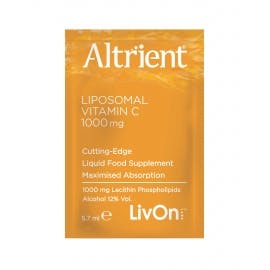How to rebuild your health after giving up smoking
Hallelujah! You’ve done it….you’ve finally joined the legions of determined quitters and given up smoking. Could be, it’s just days or weeks since you’ve knocked this dreaded habit on the head but you’re probably noticing changes already.
Apart from that glorious smug feeling of being able to call yourself a non-smoker you may also be experiencing a renewed taste bud explosion and a heightened sense of smell. These changes happen within as little as 48 hours.
Other almost immediate health benefits make it worth all the effort. Over the coming weeks, months and years your body gradually starts to recover.
- Your blood pressure decreases
- Your blood oxygen levels increase to normal
- Your chance of having a heart attack decreases
- Your chance of having a heart attack decreases
- Your nerve endings start to re-grow
- Your nerve endings start to re-grow
- Your pulse rate drops
- Your risk for stroke falls
- Your circulation improves
- Your lung function increases
- Your skin quality improves
- Your risk for cancer of the lungs, throat, mouth and bladder are halved
Realistically though, you first have to suffer the unpleasant effects of nicotine withdrawal which last from 2-4 weeks after quitting. There’s no easy way around this but the good news is that there are countless tools available to support you along the way. The NHS provides some very effective treatments and therapies to help you get through it.
Once you’re over the worst it’s a good time to capitalise on your renewed sense of well-being and take action to rebuild your health. Although the body has some very effective mechanisms in place for healing itself you can help speed up the process and give yourself a greater chance of a long and healthy smoke-free life!
HOW VITAMIN C CAN HELP?
Vitamin C is probably one of the best known and most used of all vitamins and isn’t just handy for those moments when you feel the sniffles coming. It performs a myriad of functions in the body and, in terms of regaining your health after giving up smoking, could be invaluable ….
- Lung Function
Cigarette smoke contributes to the loss of lung function, partly due to the oxidative burden it places on your lungs. Because Vitamin C is a major antioxidant it helps to protect your lungs against oxidative stress. Several studies have confirmed that vitamin C has a beneficial effect on lung function.
- Cardiovascular health
It’s well documented that smoking causes damage to the blood vessels that could potentially leave you at risk of heart disease and strokes. The antioxidant properties of vitamin C play a key role in the health and repair of blood vessels, so it’s crucial for maintaining cardiovascular health.
- Gum disease
Smokers frequently develop gum disease - most likely due to their depleted levels of vitamin C which is required for collagen synthesis. Collagen is an important structural component of gums, bones, teeth, tendons ligaments, skin and blood vessels and is essential for improving gums and sensitivity. If you have bleeding gums, gingivitis or have lost teeth, this could be a sign that you may have low levels of vitamin C.
- Poor skin
Early research has indicated that smoking has an adverse effect on vitamin C metabolism and continuing research confirms that smokers have lower levels of vitamin C in the blood than non-smokers. Lack of this vital vitamin leads to blood vessel fragility and connective tissue damage, both essential for keeping your skin in tip-top condition. A deficiency in vitamin C affects your ability to produce collagen which maintains the tone, strength and elasticity of your skin.
- Fatigue
Vitamin C is part of a number of different mechanisms in the body that generate energy. Specifically, it helps to synthesise Carnitine which plays a critical role in energy production by transporting fatty acids to the cells where they can be used as fuel. In addition to this, vitamin C helps your body to absorb iron, without which you would eventually become anaemic. Iron deficiency is commonly known to lead to fatigue.
INCREASING YOUR VITAMIN C LEVELS
Now you know all the details, you should be beating a path to the nearest supplier of vitamin C. This is understandable especially if you have given up after many years of smoking and the signs of damage are noticeable.
It may be that you’re not a great lover of fruit and veg and are hard pushed to get one a day into your diet let alone the 5-10 you’ll need to maximise your vitamin C levels. In this case, supplementation is a sensible option.
Just before you rush out and stock up on huge pots of vitamin C, stop and consider the form that you buy. Standard oral vitamin C supplements are very poorly absorbed due to digestive limitations in the gut.
Efficacy and absorption are key in any supplement, which is why liposomal forms of vitamin C such as Altrient C are the best choice. Altrient C provides maximum bioavailability, way surpassing the efficacy and absorption of any standard vitamin C product.
Altrient’s liposomal delivery system ensures phenomenal absorption of the encapsulated vitamin C into the bloodstream. The liposomes carrying vitamin C in a protective membrane, are able to withstand the acidic environment of the digestive system and by-pass the tightly regulated absorption controls of the body. Carrying the vitamin in a liposome makes sure that almost 100% of the vitamin C reaches the cells that really need it.
IMPORTANT LIFESTYLE CHANGES
There are a couple of basics aside from vitamin C that should be mentioned on your road to recovery.
- Don’t underestimate the benefit of regular exercise, this improves your cardiovascular health, increases your lung capacity, improves the oxygen supply to your brain and skin and raises the feel-good hormones that make you happy and keep you motivated. Aim for at least 30 minutes a day.
- Keep your diet healthy and well balanced. This means choosing wholegrain carbohydrates, lean proteins and a wide variety of fruit and vegetables. Try to avoid sugar, processed foods and too much alcohol.
These simple changes coupled with a daily dose of vitamin C should get you on the road to a long and healthy smoke-free life.
Jacqueline Newson BSc (Hons) Nutritional Therapy


.jpg?auto=format&q=45&w=262&trim=auto)
.jpg?auto=format&q=45&w=262&trim=auto)
